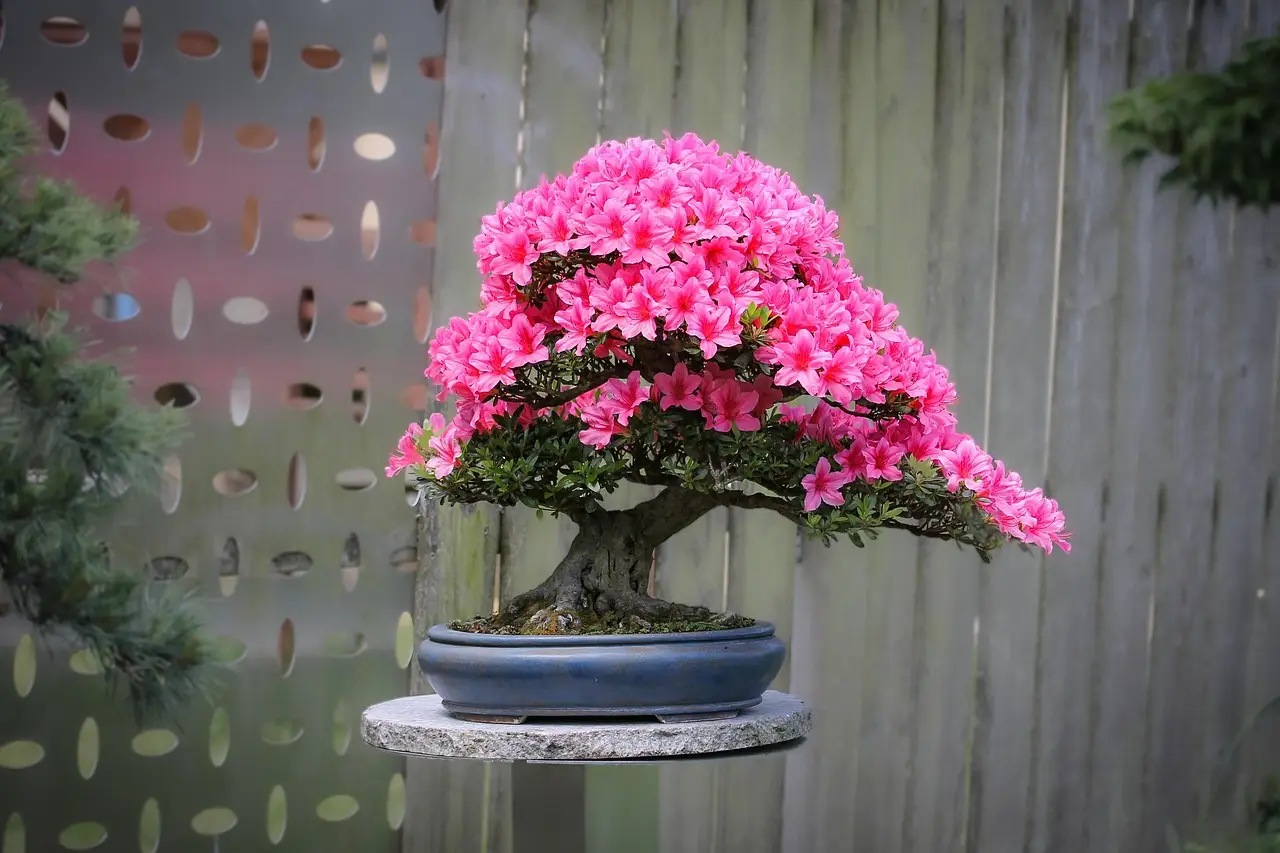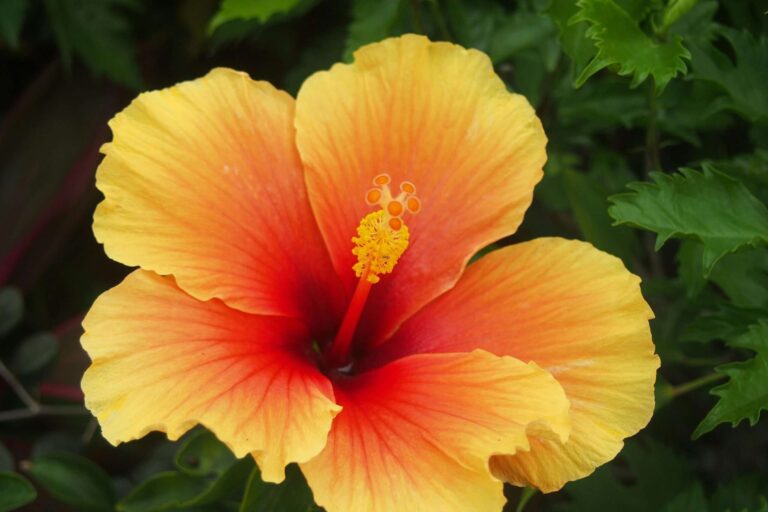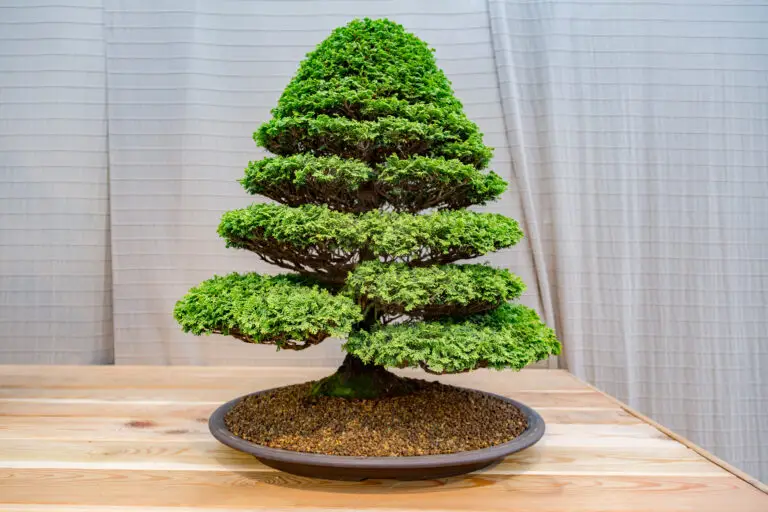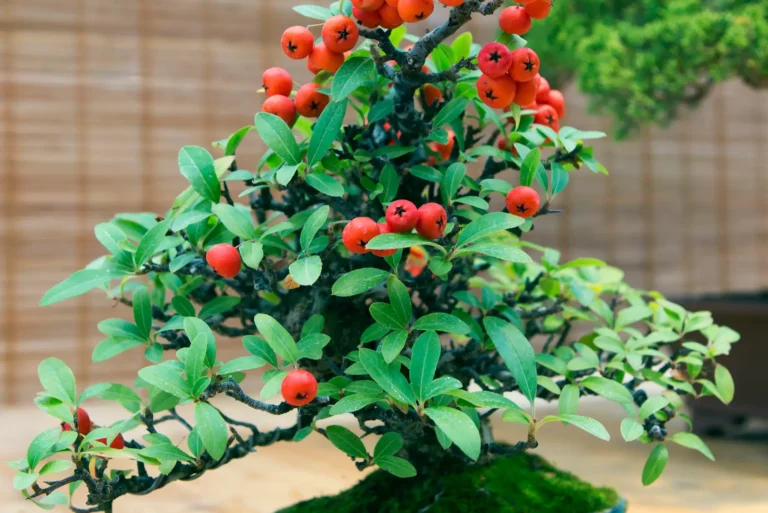Azalea Bonsai Care Guide By Master Mori, humble guardian of small trees and large truths
In this bonsai care guide we take a look at the Azalea bonsai trees, Azalea Bonsai (Rhododendron spp.) are among the most prized flowering bonsai species, known for their stunning spring blooms that come in various colours including pink, red, white, and purple. Popular varieties include Satsuki Azalea and Kurume Azalea, which are favored for their small leaves, compact growth, and ability to flower profusely.
Due to their sensitivity and specific care requirements, azaleas are better suited to experienced bonsai keepers who can provide consistent attention to watering, soil pH, and root care.
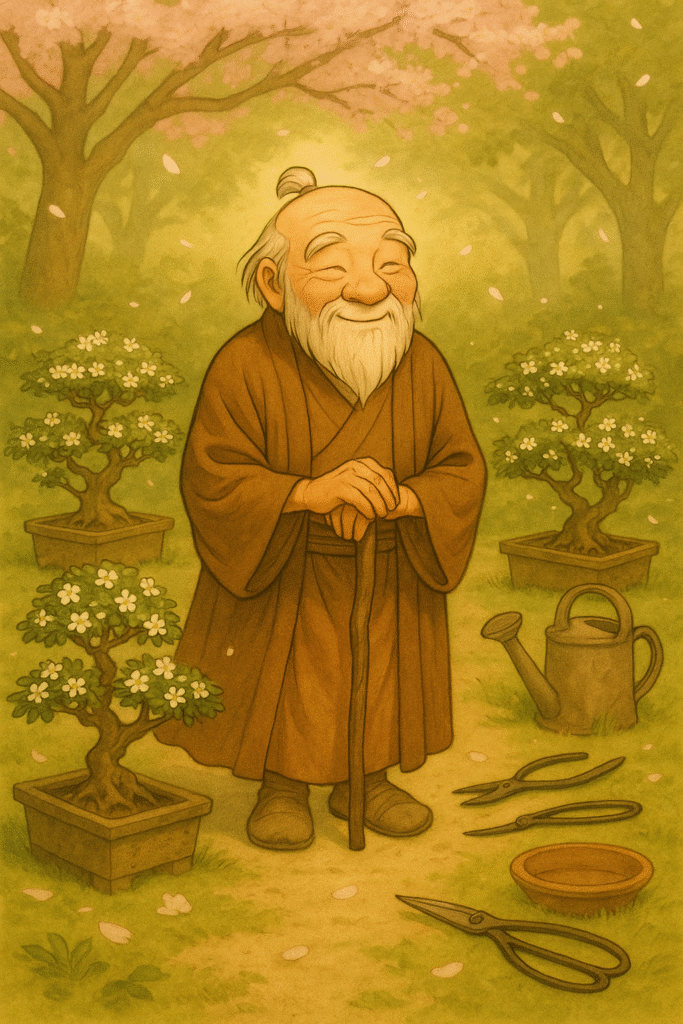
Azalea Bonsai Care Guide
🌸 Azalea Bonsai Care Guide
🔍 Quick Overview
| Trait | Details |
|---|---|
| Skill Level | Advanced |
| Best Climate | Temperate / Outdoor |
| Light Needs | Bright indirect light to partial sun |
| Watering | Keep soil consistently moist |
| Growth Style | Flowering bonsai with showy blooms |
🧪 Azalea Bonsai Care Essentials
🌞 Light
Azaleas prefer bright, indirect light or dappled sun. Too much direct sun can scorch delicate leaves and flowers, especially during hot summers. Ideal placement is morning sun with afternoon shade.
💧 Watering
Keep soil consistently moist—azaleas do not tolerate drying out. Use rainwater or distilled water when possible, as they are sensitive to hard tap water and prefer slightly acidic conditions.
🌿 Soil
Use an acidic, well-draining bonsai soil, such as a mix containing kanuma (a Japanese soil for acid-loving plants). Avoid alkaline soils, as they can lead to leaf yellowing and poor flower production.
🌾 Fertilizer
Feed with a low-nitrogen fertilizer designed for acid-loving plants during the growing season. Avoid fertilizing while in bloom. Use organic pellets or liquid feed monthly from spring to early autumn.
🪴 Repotting
Repot every 2–3 years, preferably after flowering in late spring or early summer. Do not disturb the roots too aggressively—azaleas have fine, sensitive roots. Always use fresh acidic soil when repotting.
✂️ Pruning & Shaping
Prune after flowering to shape the tree and encourage compact growth. Avoid pruning in late summer or autumn, as this may remove flower buds. Azaleas respond well to wiring, but their branches can be brittle—wrap with care and check regularly.
⚠️ Azalea Bonsai Common Fixes
| Problem | Likely Cause | Fix |
|---|---|---|
| Leaf yellowing | Alkaline soil or hard water | Use acidic soil and rainwater/distilled water |
| Bud drop | Dry soil or sudden temperature shifts | Maintain consistent watering and protect from cold drafts |
| Root rot | Poor drainage or overwatering | Repot with free-draining acidic soil; reduce watering slightly |
❓Azalea Bonsai Care Guide FAQs
Can Azalea bonsai be grown indoors?
Azaleas are best grown outdoors, but can be brought indoors briefly while blooming. They require seasonal changes and outdoor airflow to stay healthy long-term.
When do Azalea bonsai trees bloom?
Typically late spring to early summer, depending on the variety and climate.
Are Azaleas toxic to pets?
Yes, Azaleas are toxic if ingested by cats, dogs, or humans. Keep out of reach.
Azalea Bonsai Related Topics –
Azalea bonsai care
How to grow azalea bonsai
Satsuki azalea bonsai tips
Flowering bonsai tree guide
Rhododendron bonsai soil
Bonsai pruning after flowering

